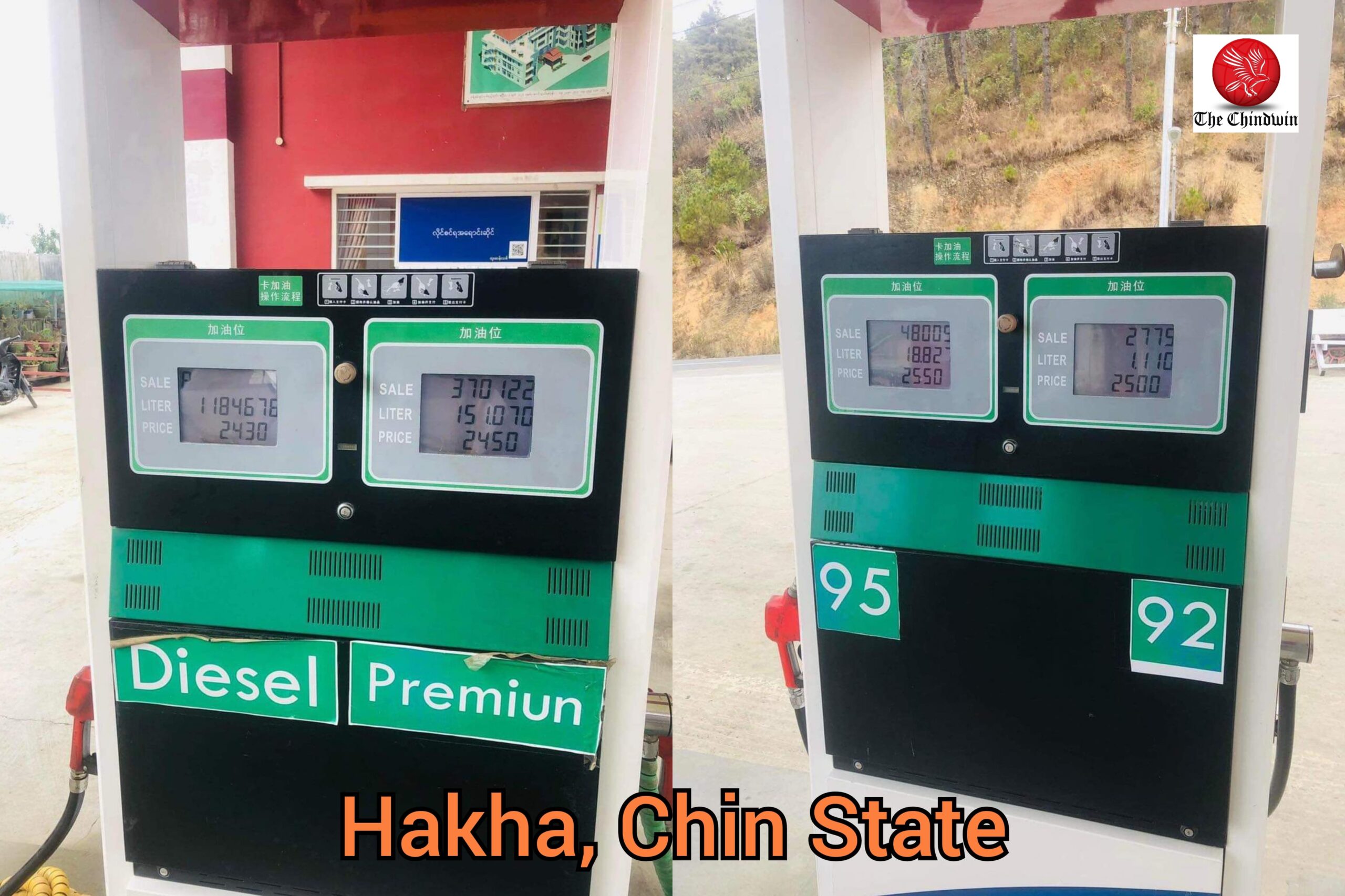
Soaring Fuel Prices: A Looming Crisis For Consumers And Businesses
Editor's Notes: "Soaring Fuel Prices: A Looming Crisis For Consumers And Businesses" have published today date. This topic "Soaring Fuel Prices: A Looming Crisis For Consumers And Businesses" is important for everyone.
We've done some analysis, digging information, made Soaring Fuel Prices: A Looming Crisis For Consumers And Businesses we put together this Soaring Fuel Prices: A Looming Crisis For Consumers And Businesses guide to help you make the right decision.
Key differences or Key takeways
| Category | Key Differences |
|---|---|
| Consumers |
|
| Businesses |
|
Transition to main article topics
FAQ
The global fuel crisis has sent shockwaves through both the consumer and business sectors, sparking widespread concern. To address the most pertinent questions and misconceptions surrounding this pressing issue, we have compiled a comprehensive list of frequently asked questions.

Africa’s Food Processing Businesses & a Food Security Crisis - Source www.technoserve.org
Question 1: What are the primary factors driving the surge in fuel prices?
The complex interplay of geopolitical tensions, disrupted supply chains, and increased global demand have all contributed to the escalating fuel prices. The invasion of Ukraine by Russia, a major oil and gas exporter, has exacerbated the situation, leading to sanctions and trade restrictions.
Question 2: How is the fuel crisis impacting consumers?
Consumers are facing a significant financial burden as transportation costs rise. Higher fuel prices translate into increased expenses for daily commutes, travel, and the transportation of goods and services, which in turn lead to inflationary pressures.
Question 3: What are the implications for businesses?
The soaring fuel prices pose challenges to businesses, particularly those heavily reliant on transportation and logistics. Increased operating costs can erode profit margins and disrupt supply chains, ultimately impacting the availability and affordability of goods and services.
Question 4: Are there any government measures being taken to mitigate the crisis?
Governments worldwide are exploring various strategies to alleviate the burden on consumers and businesses. These measures include fuel subsidies, tax reductions, and incentives for fuel-efficient vehicles. However, the effectiveness and sustainability of such interventions remain debatable.
Question 5: How long is the fuel crisis expected to last?
The duration of the fuel crisis is difficult to predict, as it hinges on the resolution of geopolitical conflicts, the recovery of global supply chains, and the overall trajectory of global demand. However, experts caution that the crisis could persist for an extended period.
Question 6: What are the potential long-term consequences of the fuel crisis?
The long-term implications of the fuel crisis are multifaceted. It could lead to a shift toward renewable energy sources, increased energy efficiency, and changes in consumer behavior. The crisis also highlights the fragility of global supply chains and the need for greater resilience in the face of future disruptions.
As the fuel crisis continues to unfold, it is crucial for individuals, businesses, and governments to stay informed and adapt to the evolving landscape. Collective efforts to promote energy conservation, support innovation, and mitigate the economic fallout will be essential for navigating this challenging period.
Tips to Mitigate Soaring Fuel Prices
The relentless surge in fuel prices has become a grave concern for both consumers and business enterprises. These tips can provide guidance on how to navigate this looming crisis and alleviate its impact.

2024 Bid in Jeopardy? Biden Faces Soaring Prices, Expensive Gasoline - Source sputnikglobe.com
Tip 1: Enhance Fuel Efficiency
Maximize fuel efficiency by adopting eco-friendly driving habits, such as maintaining optimal tire pressure, avoiding excessive idling, and driving at a steady pace. Consider carpooling or using public transportation when feasible.
Tip 2: Explore Alternative Fuels
Investigate alternative fuel options, such as hybrid or electric vehicles, which can significantly reduce fuel consumption and emissions. Biodiesel and ethanol are also viable options for some vehicles.
Tip 3: Consolidate Errands
Plan trips efficiently by combining multiple errands into a single outing. This minimizes the number of trips and fuel consumed. Consider using online grocery services or delivery options to reduce driving.
Tip 4: Seek Government Assistance
Explore government initiatives and assistance programs that provide financial relief or incentives for fuel-efficient vehicles or alternative fuel conversions. Check with local authorities for available options.
Tip 5: Adjust Business Practices
Businesses can optimize delivery routes, reduce unnecessary travel, and encourage remote work to minimize fuel consumption. Consider fuel-efficient vehicles for fleets and implement teleconferencing to reduce business travel.
Conclusion
Soaring Fuel Prices: A Looming Crisis For Consumers And Businesses poses a formidable challenge, but by implementing these strategies, consumers and businesses can mitigate its impact and protect their financial well-being.
Soaring Fuel Prices: A Looming Crisis For Consumers And Businesses
Fuel prices have been soaring in recent months, driven by a confluence of factors. The war in Ukraine, supply chain disruptions, and rising demand all play a part. The impact on consumers and businesses is significant, and a looming crisis is on the horizon.
- Consumer budgets: Fuel costs are a significant expense for many households, and rising prices can strain budgets.
- Business operations: Businesses that rely on transportation are also impacted by high fuel costs, which can lead to increased operating expenses.
- Inflation: Rising fuel prices contribute to inflation, as businesses pass on their increased costs to consumers.
- Economic growth: High fuel prices can slow economic growth as consumers and businesses have less money to spend on other goods and services.
- Supply chains: Disruptions in fuel supply can lead to shortages and price spikes, further exacerbating the crisis.
- Environmental impact: Soaring fuel prices can incentivize the use of alternative energy sources, potentially reducing emissions.
The looming crisis posed by soaring fuel prices requires a multi-faceted approach. Governments, businesses, and consumers must work together to mitigate the impact on households and the economy. This may involve measures such as financial assistance, supply chain optimization, and investment in alternative energy. By addressing these key aspects, we can navigate the challenges ahead and ensure a more sustainable and resilient future.

Soaring Fuel Prices Mean Fewer Flights For Boise | StateImpact Idaho - Source stateimpact.npr.org
Soaring Fuel Prices: A Looming Crisis For Consumers And Businesses
Fuel prices have been soaring in recent months, and this is having a significant impact on consumers and businesses alike. The main causes of this rise in prices are the increased demand for oil, the decrease in supply, and geopolitical tensions. The importance of this topic as a component of "Soaring Fuel Prices: A Looming Crisis For Consumers And Businesses" lies in the fact that it is a major factor in the current economic crisis. It is leading to increased costs for consumers and businesses, which is putting a strain on their finances. In some cases, it is even leading to businesses having to close their doors.

Soaring food and fuel prices a looming threat to millions in Myanmar - Source www.thechindwin.com
There are a number of things that can be done to address the issue of soaring fuel prices. One is to increase the supply of oil. This could be done by drilling more wells, or by investing in alternative energy sources. Another is to decrease the demand for oil. This could be done by promoting fuel efficiency, or by encouraging the use of public transportation.
The issue of soaring fuel prices is a complex one, and there is no easy solution. However, by understanding the causes of the problem, and by considering the different options available to address it, we can take steps to mitigate the impact of this crisis on consumers and businesses.
Table: The impact of soaring fuel prices on consumers and businesses
| Consumers | Businesses |
|---|---|
| Increased transportation costs | Increased transportation costs |
| Increased home heating costs | Increased production costs |
| Increased food prices | Decreased sales |
Conclusion
The soaring fuel prices are a major challenge for consumers and businesses alike. However, by understanding the causes of the problem, and by considering the different options available to address it, we can take steps to mitigate the impact of this crisis.
One important step that we can take is to invest in alternative energy sources. This will help to reduce our dependence on fossil fuels, and it will also help to reduce the impact of fuel price fluctuations on our economy.
Recomended Posts


